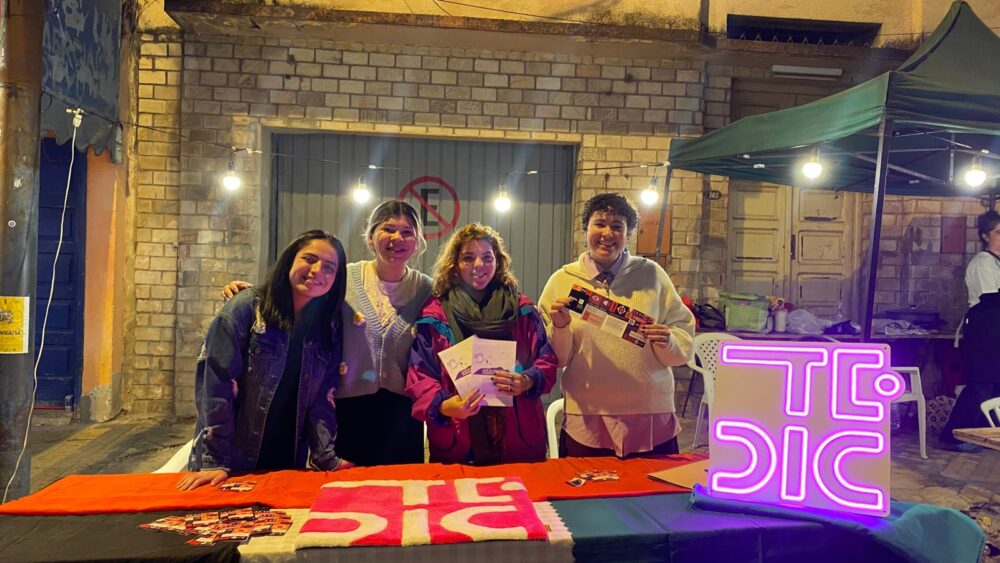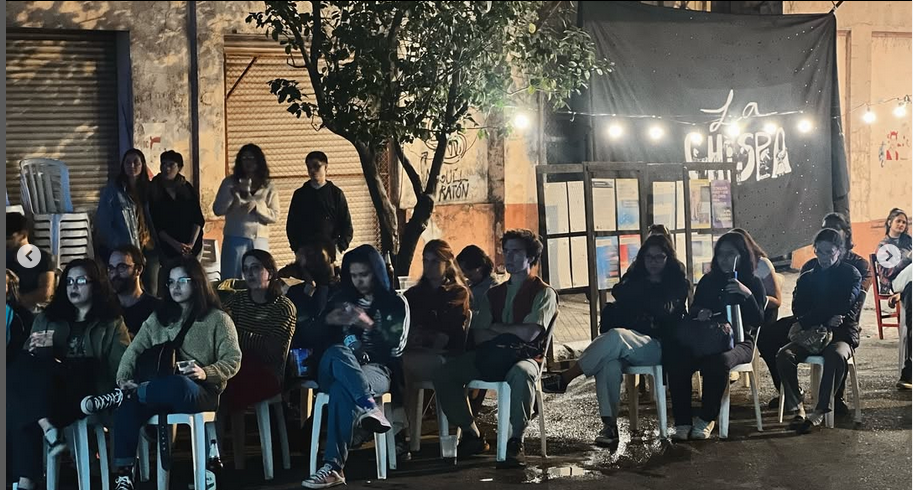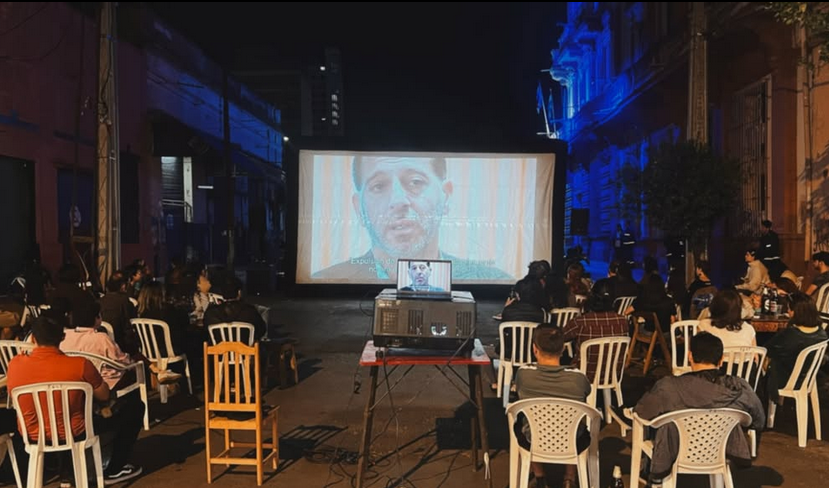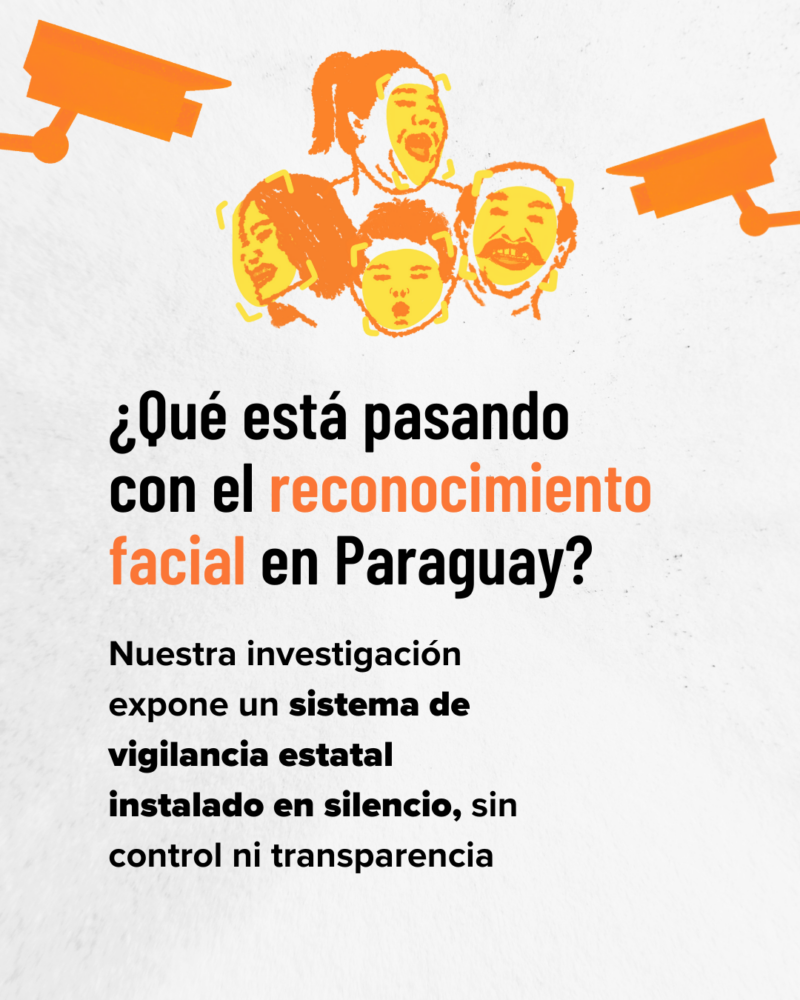
At TEDIC, we organized the event “Alto al fuego”, as part of the international campaign Stop Killer Robots. It was a day of exchange, remembrance, and critical thinking, held in collaboration with La Chispa Cultural Center and the Cine Club Itinerante platform. The gathering took place on the block of El Teatrario, at the intersection of Garibaldi and Palma streets, on Saturday, July 5.
Together with our community and as an act of solidarity with the Palestinian people, we came together to reflect and raise our voices in calling for an end to the attacks carried out by Israel. Through the screening of the documentary “1948: Creation and Catastrophe”, we were able to situate ourselves historically at the beginning of the conflict in Palestinian territory and gain a deeper understanding of the dispute through firsthand testimonies and documents from the time.
As an organization that fights for human rights and their intersection with technology, we are deeply concerned about the use of autonomous weapons for military purposes in conflicts such as the one currently being led by Israel against Palestine. We are also alarmed by the use of drones and other technologies to surveil and attack humanitarian aid groups trying to reach the area.
In this context, we also presented our mini-exhibition titled “Re(x)sistent to digital dehumanization”, a series of research-based pieces that denounce—from a human and social perspective—the militarization of technology and the normalization of surveillance and automated violence.


Film Discussion: Exercises in Memory
The documentary “1948: Creation and Catastrophe” is narrated through the memories of Palestinian and Israeli individuals, revealing the dramatic events of the most critical year in this ongoing conflict. It features interviews with war veterans, refugees, survivors, and historians, recorded in Palestine, Israel, Jordan, Lebanon, the United Kingdom, Canada, and the United States.
“It is simply impossible to understand what is happening today in the Israeli-Palestinian conflict without understanding what happened in 1948. This documentary was the last opportunity for many of its Palestinian and Israeli participants to give a firsthand account of the creation of a state and the expulsion of a nation,” states the synopsis.
The screening was followed by a debate that opened a space for plural and horizontal dialogue about the current situation in Palestine, the role of civil society in peace building, grassroots resistance from our territories, and the urgent need to limit the use and development of weapons powered by artificial intelligence. Attendees also shared poems and encouraged the use of other artistic expressions to strengthen the call for peace.
Technology in Service of the People Not the Other Way Around
The exhibition Re(x)sistent to digital dehumanization, which has already traveled through various spaces and events in 2024 —including UNILA and the OAS General Assembly— includes works aimed at raising public awareness about the need to regulate autonomous weapons and the use of artificial intelligence in national security contexts.
Digital dehumanization is a phenomenon in which people are reduced to data, stereotypes, labels, and objects, thereby losing our human essence. These pieces invite viewers to critically reflect on how technologies, far from being neutral, often reproduce structural inequalities and forms of violence when used without oversight, regulation, or a human rights-centered approach.



At TEDIC, we reaffirm our commitment to the defense of human rights, the resistance to the use of technology as a tool of violence, and the building of peace through art, memory, and collective reflection. Through Ceasefire, we promote spaces of encounter where technology is not a weapon of death, but a means to imagine fairer, more humane, and freer futures.

 Not with my face: The Paraguayan State deploys facial recognition without transparency or oversight
Not with my face: The Paraguayan State deploys facial recognition without transparency or oversight